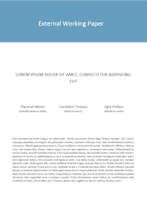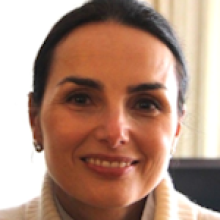Motivated by the unprecedented boom in economic research during the pandemic, this project analyses research output in economics to quantify the effects of the pandemic and related containment measures on economists’ research productivity by gender, seniority, institution, and geography.
We collect publicly available data on the research output from authors who have produced articles in either the NBER Working Papers Series (since 2004), the CEPR Discussion Paper Series (since 2004), VoxEU (since it started), or the CEPR Covid Economics: Vetted and Real-Time Papers (since it started).
Our preliminary results based on the CEPR and the NBER from 2004–2020, show the following patterns. First, there was a big increase in the number of research papers and contributors in 2020; in fact, there was an increase in the average number of papers produced per person for all seniority groups. Midcareer women saw the smallest boost in productivity. Second, the share of women contributing to the CEPR and NBER in 2020 remained comparable to previous years (both overall and in Covid-related research). However, midcareer women represented the smallest share of contributors to Covid-related research. Third, Covid-related research was done in larger co-authorship groups, but senior men contributed to such research in smaller co-authorship groups.
This project started in the first months of the pandemic in April 2020. At the time, we collected only a subset of the current data, from January to April for the 5 years between 2015–2020. Our findings were highly covered by the international academic and non-academic press such as Nature, PNAS, and VoxEU, among others.
We have created a website that shows graphically the preliminary results of the project and collects the relevant information such as a list of the press coverage.
Economics Coauthorships in the Aftermath of MeToo
Economics Coauthorships in the Aftermath of MeToo, Noriko Amano-Patino, Elisa Faraglia and Chryssi Giannitsarou, 2024, CEPR Discussion Paper No. 18969
We study the impact of the MeToo movement on coauthorships in economics, by analyzing NBER and CEPR working papers between January 2004 and December 2020. Compared to pre-MeToo levels, collaborations across genders increased: we estimate a 12.5% increase of women coauthors per 100 men-authored papers. However, the movement led to an overall decline in new coauthorships, with senior researchers reducing new collaborations, especially with junior authors. In particular, they reduced their new collaborations with junior women by an estimated 33% per 100 senior-authored papers. The Covid-19 pandemic partially reversed the first of these two trends.





